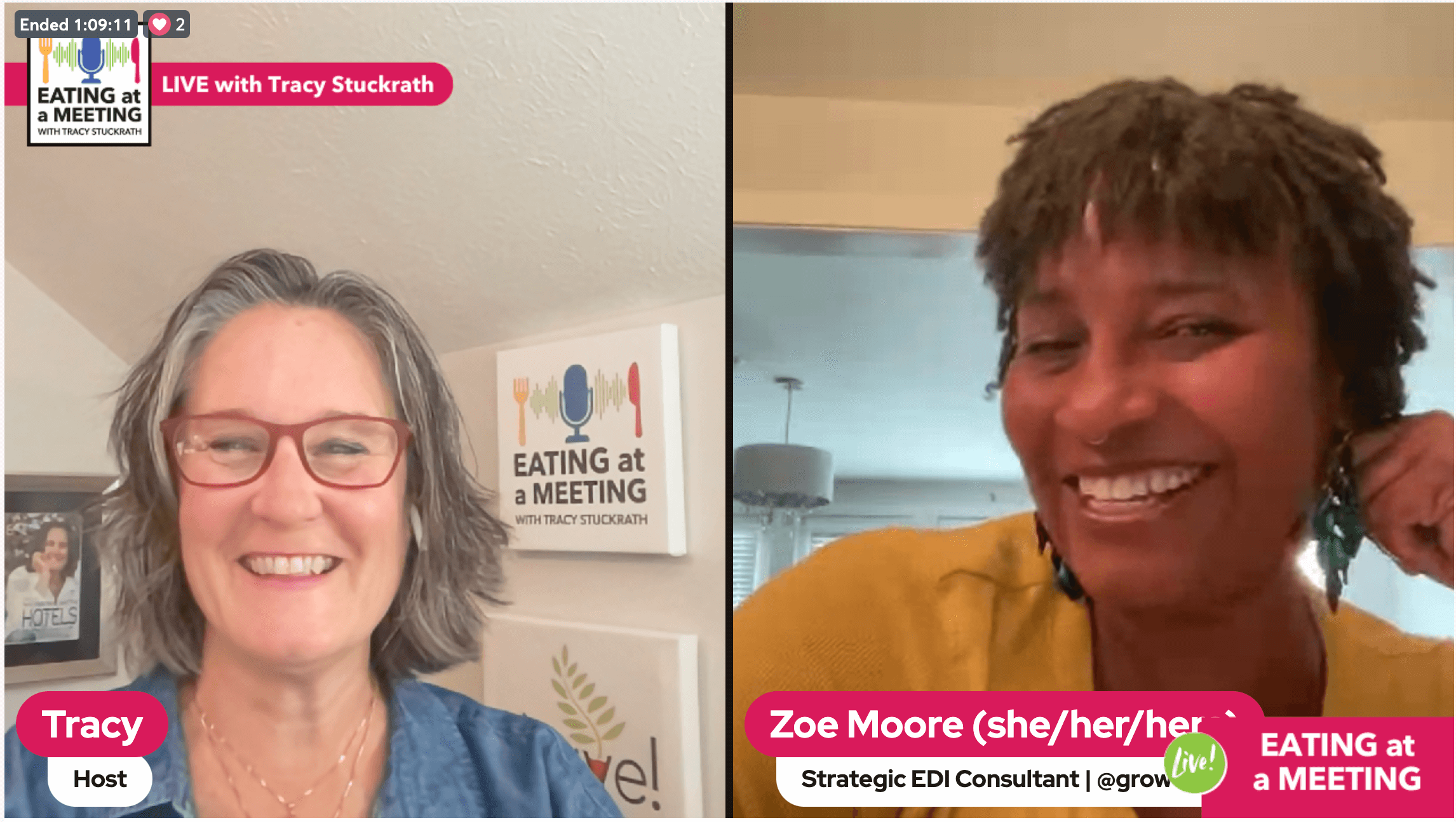What does it Take?
A Deep Dive into Inclusive Food & Beverage Experiences
Eating at a Meeting Podcast Episode #268
 Creating Truly Inclusive Food & Beverage Experiences
Creating Truly Inclusive Food & Beverage Experiences
In this episode of “Eating at a Meeting,” I’m joined by Zoe Moore, an equity, diversity, and inclusion consultant specializing in the hospitality and events industry. Tracy and Zoe discuss the importance of designing truly inclusive food and beverage experiences at events. They explore the challenges of creating mocktails that match the crafted nature of alcoholic beverages, the critical role of communication in managing dietary restrictions, and the importance of supplier diversity. From strategies to ensure accountability in contracts to fostering inclusive practices within the culinary teams, this episode provides actionable insights for event planners and hospitality professionals who aim to create equitable and enjoyable experiences for all attendees.
Heard on the Episode
“Mocktails are crucial for inclusivity—they should be presented just as attractively as alcoholic drinks.”
~Zoe Moore (12:34)
“Event planners must recognize that inclusivity in the supply chain means integrating small, innovative businesses that are often born from solving their own problems.”
~Zoe Moore (28:50)
Key Topics Discussed
Inclusive Beverage Options
- Importance of non-alcoholic drinks and mocktails.
- Presentation and attractiveness of non-alcoholic options.
Communication & Teamwork
- Clear communication about dietary restrictions and allergies.
- Ensuring culinary teams are well-informed and collaborative.
Contract Clauses & Accountability
- Integrating specific clauses to ensure adherence to inclusivity agreements.
- Possible penalties for non-compliance by hotels and venues.
Supplier Diversity
- Challenges and necessity of diversifying suppliers.
- Including small, innovative businesses in event planning.
Event Planning Best Practices
- Detailed labeling of food items with allergens.
- Pre-event preparation and ongoing communication.
Key Takeaways
- Inclusivity in Beverage Choices: Mocktails and other non-alcoholic drinks should be given the same creative effort and presentation as alcoholic options to ensure all attendees feel included and appreciated.
- Effective Communication: Clear, ongoing communication between event planners, culinary teams, and venues about dietary restrictions is essential for guest safety and comfort.
- Supplier Diversity: Involving diverse suppliers, including small businesses, enriches the event experience and supports innovative solutions to common industry problems.
- Accountability in Contracts: Including specific inclusivity and safety clauses in contracts encourages venues to adhere to agreed standards and practices.
- Proactive Planning: Collecting and updating dietary information and pre-planning communication can prevent issues and ensure a seamless event experience.
Tips
- Start Early: Begin discussions with bar managers and suppliers about non-alcoholic options well in advance of the event to ensure availability and quality.
- Detailed Labeling: Always label food items with specific allergens and dietary information to make it easy for guests to identify safe options.
- Include Everyone: Ensure that all culinary team members, including pastry chefs, are involved in discussions about dietary restrictions and event planning.
- Vendor Engagement: Build relationships with small and diverse vendors who can provide unique, niche food and beverage options.
- Empower Attendees: Encourage attendees to voice their dietary needs and preferences without feeling like a burden, fostering a more inclusive environment.
Links
Connect with Zoe: Website | LinkedIn | Instagram
Check out other featured guests on the Eating at a Meeting podcast
Eating at a Meeting is part of the Nitty Grits Podcast Network.



